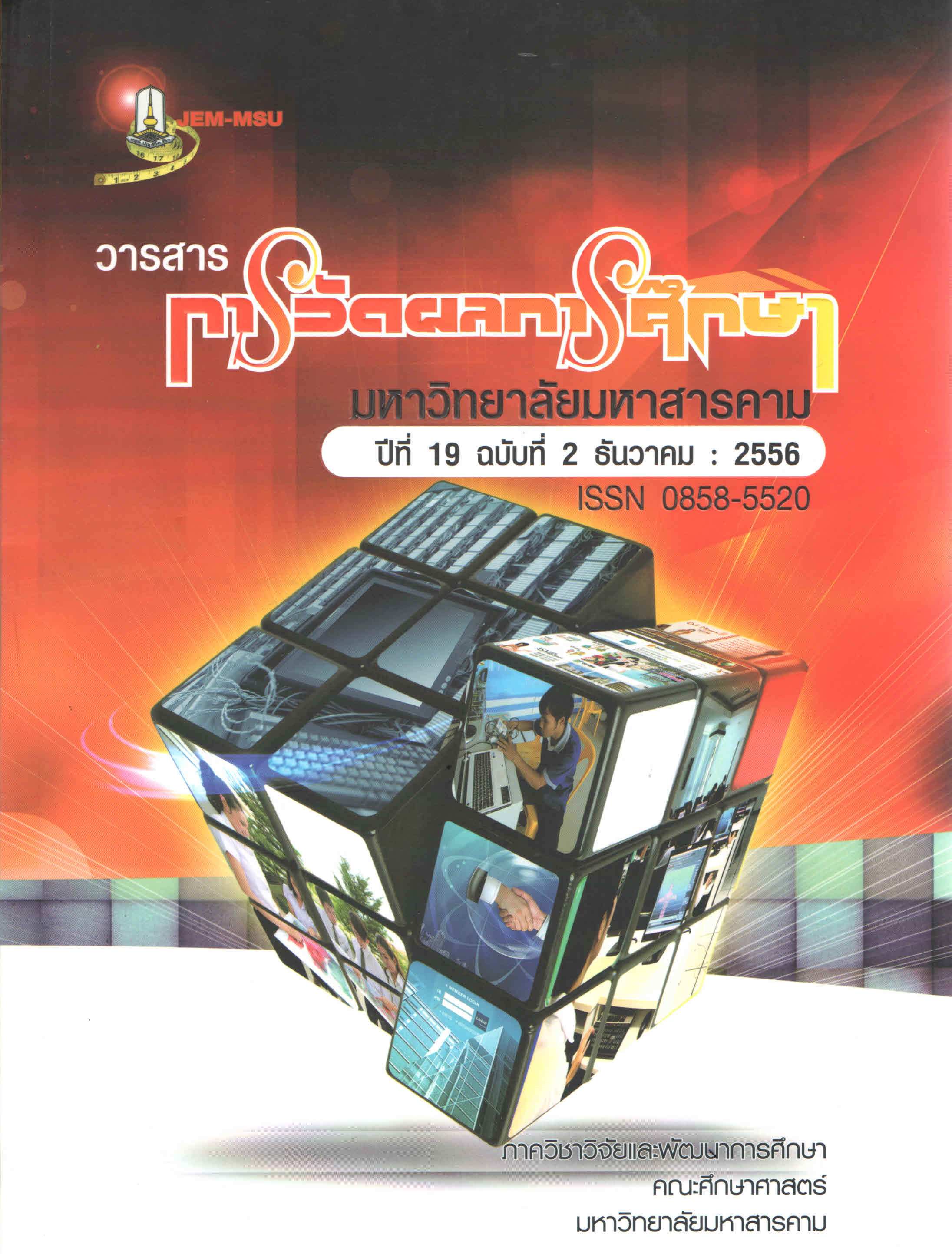ปัจจัยที่มีอิทธิพลต่อการรับรู้ความเสี่ยงด้านอุบัติเหตุจราจรของนิสิตระดับปริญญาตรีมหาวิทยาลัยมหาสารคาม
Main Article Content
Abstract
This research aims to. 1) to develop a model of factors that influence the traffic accident
of risk perception. 2) to study the influence of the variables Media influence, Personality,
Motivated behavior, Attitude Perceived of traffic rules and Future orientation. Affecting the
perceived risk of traffic accidents. the sample consisted of 1,300 undergraduate students from
Mahasarakham University in the second semester of the academic year 2012 , selected by a threestage stratified random sampling technique. The tools used in this research were. 1) traffic accident
of risk perception with discriminating powers ranging .49 -.97 and a reliability of .93, 2) future
orientation with discriminating powers ranging .41 -.71 and a reliability of .81, 3) attitude perceived
of traffic rules with discriminating powers ranging .41 -.76 and a reliability of .82, 4) motivation with
discriminating powers ranging .46 -.82 and a reliability of .84, 5) personality with discriminating
powers ranging .54 -.71 and a reliability of .83 and 6) media influence with discriminating powers
ranging .31 -.76 and a reliability of .75. Data were analyzed by latent variable of path analysis of
structural equation modeling (SEM).
The results of the study were as follows:
1. The causal model of the traffic accident of risk perception consisted with empirical
data regarding 2= 141.880, df = 123, p = .117, CFI = 1.000, GFI = .989, AGFI = .984, RMSEA = .011,
and 2/df = 1.133. All variables in the model are described. Variability of the traffic accident risk
perception was 63.30 percent.
2. The Variable with a direct effect on the traffic accident of risk perception is a future
orientation. and media influence. Variables that influence both directly and indirectly is
personality, motivation and attitude perceived of traffic rules.
Article Details
The content and information contained in the published article in the Journal of Educational Measurement Mahasarakham University represent the opinions and responsibilities of the authors directly. The editorial board of the journal is not necessarily in agreement with or responsible for any of the content.
The articles, data, content, images, etc. that have been published in the Journal of Educational Measurement Mahasarakham University are copyrighted by the journal. If any individual or organization wishes to reproduce or perform any actions involving the entirety or any part of the content, they must obtain written permission from the Journal of Educational Measurement Mahasarakham University.


